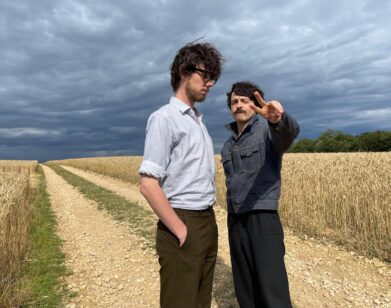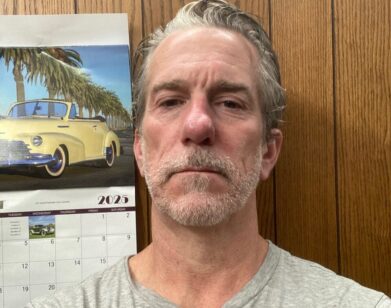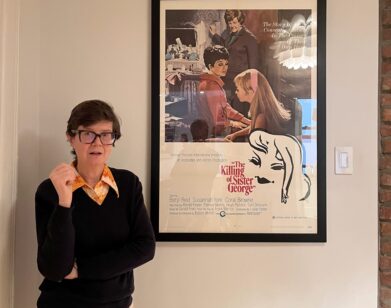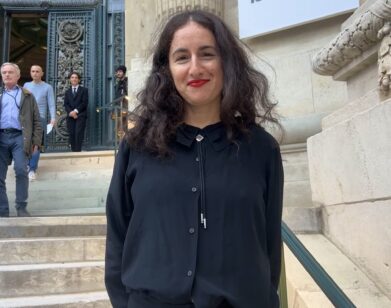LIT
With Her Debut Novel, Rachel Connolly Is Avoiding the Discourse Trap
I’d been a fan of Rachel Connolly’s non-fiction writing for years before I read her debut novel, Lazy City. As a cultural critic, she always struck me as kind of a one-off: someone who was able to take stern issue with cultural and literary trends without ever coming off as humorless or aridly contrarian. Whether she’s writing about the value of gossip, essayists whose whole deal is saying that everything is “late capitalism,” or profiling the English novelist Gwendoline Riley, Rachel’s voice is always effortlessly original and stylish.
When Lazy City arrived last year, it seemed to me like a book that needed to be written. So many debut novels—so many books of all sorts, really—feel like their primary reason for being brought into the world is that their authors just really wanted to write a book. Rachel’s book felt to me, though, like the work of a writer who had a lot of things to say: about her home city of Belfast, about family, about grief, about being a young person in the world. It felt like a book that needed to exist.
Rachel and I have been in touch a fair amount over the last few years, but I was glad for the official opportunity this interview afforded me to grill her about her whole enterprise. We talked last December over Zoom—her from London, me from Dublin—about the difference between her journalism and her fiction, the trend toward didacticism in novels, and about where she fits into the whole “Irish Writing” racket.
———
RACHEL CONNOLLY: I’m excited, I never speak to you.
MARK O’CONNELL: I know this is a weird way to do it, but at least we’re doing it. How has the experience of publishing your first book been?
CONNOLLY: Some bits of it are nice. I’ve been pleased with some of the reviews, some of the readings, and I get nice emails. Strangely, I get a lot of emails from middle-aged men who are always like, “I never read books by young women, but for some reason I read this one and liked it.” I guess the downside is that, if you’re a young woman, everyone presumes it’s your diary that you’ve written, so you end up having to have a lot of conversations about the fact that it’s not.
O’CONNELL: I liked it a lot and I’m a middle-aged man, so…
CONNOLLY: [Laughs] I’m actually thinking of men who are older than you.
O’CONNELL: Thank you, that was the correct response. You had gained a reputation as a nonfiction writer of some note before your book. Were you conscious in any way of having to reintroduce yourself to readers who already knew who you were? Or was there an expectation that your first book would also be nonfiction?
CONNOLLY: Yeah, it probably would’ve been easier to do a nonfiction book first. A couple of publishers had gotten in touch about that, but I was already working on the novel before I started getting attention. I guess it’s a bit strange that often, when essayists write novels, they are very essayistic in form, and it almost reads like you wouldn’t really have dialogue between different characters. Everything is big paragraphs of prose. My novel style is totally different. I’m going to say this really carefully, but I think that there’s a bit of a trend for some novels which explain stuff that is a bit obvious in the essay world, if that makes sense.
O’CONNELL: Kind of, but you’re going to need to elaborate.
CONNOLLY: If I was to think of an example, it might be a novel that was broaching the themes of “Me Too.” It might have scenes with characters explaining concepts like feminism to each other. If it were to exist, there might be a big, long page where someone starts speaking and then it’s not speech at all, it’s just a big essay explaining basic feminism. That’s a really big thing in fiction at the minute, and you wouldn’t really get away with that in the essay world.
O’CONNELL: You very noticeably evade that sort of discourse trap, right?
CONNOLLY: Yeah.
O’CONNELL: I’m thinking of Erin’s absurd experience with the cafe that she’s working in, and the training day for Rago. It could very easily be a commentary on late capitalism, which it kind of is, but just in an absurd way. Then you kind of lampoon that gesture towards technocapitalism, or whatever.
CONNOLLY: That was my one thing in the book where I was like, “I’m going to make a joke about the fact that this is in books now.” I feel like if I was reading a novel, I would skip past it. But that stuff does do really well at the minute, so some people obviously like it.
O’CONNELL: Do you regret not being more prescriptive?
CONNOLLY: [Laughs] Always. I was thinking the other day about how a lot of stuff that gets a lot of attention is very didactic, morally obvious. I was like, “Do you know what? I’m going to write a “Me Too” story and it’s going to be about a middle-aged lawyer with a yoga trainee.” Then I wrote it and went back to edit it, and he comes off as so sympathetic. So I was like, “Maybe some of us just aren’t able to do that didactic thing.” You can only write what you can write.
O’CONNELL: There’s a bit of that in Lazy City. There are lots of moments where you could have a very discourse-friendly set of relationships going on. There’s the situation with the American, but there’s also her house situation. That could very directly be a class allegory. And it’s not. It’s way messier than that, and way more real.
CONNOLLY: Trying to get to the reality of stuff is super important to me. That’s what I see the novel as a space to do. It’s actually quite hard for me to write characters that are just big bags of theme. It rankles me in a way.
O’CONNELL: One of the things that’s really interesting about the book is how fluid everything is. There aren’t those clean lines that you just talked about in terms of the didactic fiction that does well now. You can’t slice it in any one direction and get a clean cross-section of Belfast’s society. One of the things from my memory of reading it is how boozy the book is. There’s a lot of partying that goes on and a lot of messiness happening between the characters that mirrors, in a way, the fuzziness of the book. I wonder if you could say something about that booziness? I told you when I was reading it that it reminded me quite a bit of Jean Rhys. Was she a significant figure for you?
CONNOLLY: I’ve still not read her but I intend to. Although I feel it’s possible that I’ve read other work that borrows from her in that way. Gwendoline Riley is someone, though, who I share some similarities with. The fluidity of the book comes from trying to get down the passage of thought, being in someone’s head and absorbing the world as they see it. That was important to me, to not have bits like, “Three weeks later…” I didn’t want to take shortcuts with time in that way, and I really wanted to try to put you inside her head and capture everything that happens from her perspective. Hopefully the fluidity of the book is a positive consequence of trying to do that. I got a review that said that I’d accidentally left in the time bridges, which I actually spent ages leaving in on purpose.
O’CONNELL: When you’re a young female novelist, do people assume that you’ve done things almost accidentally?
CONNOLLY: Yeah. Even the positive responses assume a lack of intentionality. With some good reviews, there’s still the sense that you kind of fell down the stairs, landed, and did something that worked. That’s old-style misogyny that I guess everybody gets.
O’CONNELL: Not to be too gender about it, but it’s almost a mirror image of what I notice people respond to in my work. Lots of the stuff that I do is completely accidental, and maybe it has to do less with being a male writer than a nonfiction writer, but loads of people assume that I’ve done things deliberately, or more or less cannily. I’ve gotten credit for stuff that I stumbled onto. We’re touching on reviews now, but in a general sense, how has it been? I’ve published three books now, and I find that every time I publish a book it hasn’t gotten any better. I go mental and lose my mind for a while.
CONNOLLY: I was supposed to get a draft done when the book was coming out in the UK, and that did actually send me completely mental. I was having nightmares that the editor was writing bad reviews, which was clearly just an obvious way for your subconscious to go insane, where two things I’m stressed about are interacting with each other.
O’CONNELL: Speaking of your work, what are the preoccupations and concerns aesthetically or otherwise that you feel unite fiction and nonfiction?
CONNOLLY: I think the style of the novel and my pieces are quite different. I don’t love essayistic novels myself, but I like moral gray areas. There’s a lack of finality in a lot of my pieces. A lot of them end with me saying, “I’m not really sure what the answer to this is.”
O’CONNELL: When I read your book, I found myself looking for through lines to the nonfiction writing that I was familiar with and there were very few of those moments. One moment would be the one I already mentioned, when Erin rolls her eyes at the American. That’s something that I associate with you, your ability to roll your eyes at some of the dumber parts of the left without it being an anti-woke thing.
CONNOLLY: I think that I’m a socialist, but some of the very pious elements of the left have never really been my bag. I think it’s partly because my parents are socialists, and a lot of my leftist politics come from my grandparents who weren’t academics, but were very into the Irish freedom struggle in Northern Derry. I come to it from that very practical basis, and I think some people of my generation in England and America approach left-wing politics through a more academic context, where there is a tendency to gate-keep knowledge.
O’CONNELL: I wanted to talk about Belfast, which we haven’t really touched on yet. Obviously, the book is set in Belfast and you are from Belfast, but it doesn’t make a lot of concessions for readers who aren’t familiar with Northern Ireland or The Troubles. It’s in the background, and it unavoidably forms the context for the society in which Erin finds herself in this situation of grief. You only really understand it glancingly throughout the book. She can’t look at it directly, she doesn’t think about it head on very often, if at all. It’s a similar thing going on with the violence in the past of the city that she’s in, right?
CONNOLLY: Yeah. There’s not a therapy culture in Belfast, or a culture of everyone talking about their feelings and bringing up their traumas. It’s actually a very secretive and private place. So, to my mind, it would be so unrealistic to have the characters explaining stuff that happened during The Troubles or talking about their experiences because that doesn’t really happen. I wanted to have it linger in the background, because that is true to reality. To me, a novel is a space to try and explain what the social context of something looks like. How do people behave in a place that’s gone through something like that? Do they go around rotely explaining what happened, or does it change their character in a different way? The evasiveness of all of the characters in the book is very, very Belfast.
O’CONNELL: I don’t know Belfast very well, but the mood of the place is very much the mood of the book in a way.
CONNOLLY: There’s a really nice review from John Self, a critic who’s from Belfast, who pointed that out too, which was really meaningful to me because he obviously knows the place really well.
O’CONNELL: We’re kind of touching on the topic of Irish writing. You’re from Belfast, the book is set in Belfast, but you’ve lived in London for years now, right?
CONNOLLY: Yeah, five or six years.
O’CONNELL: So do you feel that the way in which you fit into this conversation about Irish writing and Irish writers is a little bit awkward?
CONNOLLY: That’s a really good question. So, I’ve never studied English. I did math at university, and there’s a big thing in Belfast around the Seamus Heaney Center at Queen’s University, and I don’t—
O’CONNELL: Can you explain what the whole thing is with the Seamus Heany Center? I’m not familiar with the scene.
CONNOLLY: It’s the creative writing master’s and PhD program at Queen’s University is all around this Seamus Heaney Center. There’s a big culture of people doing their master’s and their PhD in Belfast and then kind of going on to write books or books of poetry. I’m very outside of that scene. But a lot of Irish writers have been super generous to me.
O’CONNELL: I was hoping for something more cantankerous. That’s a very measured and sane response.
CONNOLLY: Actually, I’ll give you something cantankerous, which was that I got an email the other day about a poetry book from a Belfast author, and the email said, “This is the first time that there’s ever been a working class book set in Belfast.” The author bio showed that they’d done a Master’s, PhD, all of that. And then I was like, “Milkman.” I was like, “We’re not erasing Anna Burns from the record and replacing her with all these PhD students. We can’t do that.” I actually wrote that in my reply.
O’CONNELL: Right. I was going to say, “Milkman…” It’s hard to think of a more important Irish book in the last decade or so. Anyway, I wanted to ask you about the presence of religion in the book. I was really interested by the ending in particular, but it’s kind of threaded through. Erin is sort of drawn towards the church as a place and the presence of religious iconography. What role does religion play in your life?
CONNOLLY: I come from a Catholic community, but everyone in my family would be like, “Oh, I’m not a proper, true Catholic.” My grandma is always like, “I’m not holy, I’m not religious.” But she has a shrine, a cross, and rosary beads in every room of her bungalow. In the Catholic imagination, there is always this holier and more Catholic person sitting just to the left. In the book, I didn’t want to have flashbacks or anything cheesy. I was having problems about how to bring in chunks of memory without it being hokey. Then I thought, “A church is a place where she could go and sit and think in this quite natural way.”
O’CONNELL: Well, it makes a lot of sense. And it’s beautiful because this is a book about a woman who doesn’t really know what to do with her grief. And religion, in good ways and bad ways, is a place where people put their grief, a thing that can hold people’s grief. I find it very beautiful.
CONNOLLY: Thank you.







